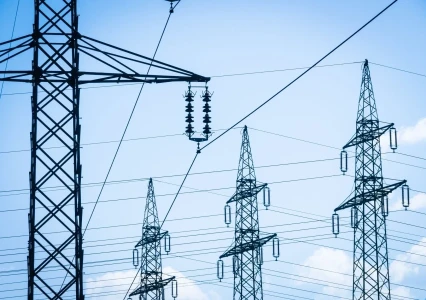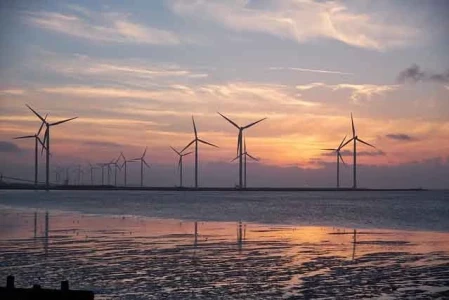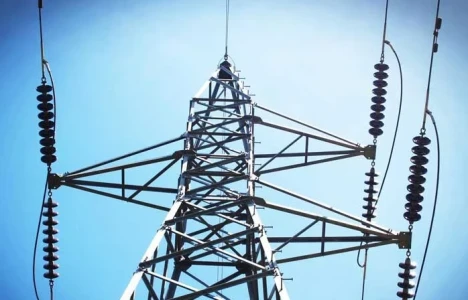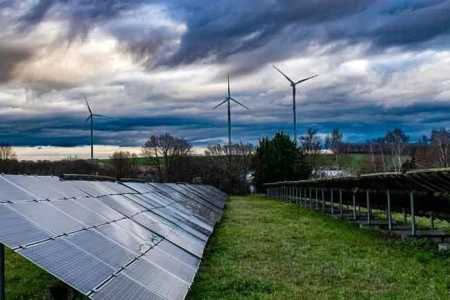New Jersey Cancels Fourth Offshore Wind Farm Award

In a significant shift in its renewable energy strategy, New Jersey has recently decided to cancel its plans to award a fourth offshore wind farm project. The decision marks a crucial moment in the state’s ongoing efforts to expand its offshore wind sector, which has long been hailed as a critical component of the state's ambitious clean energy goals. The move has prompted a mix of reactions, raising questions about the balance between clean energy development, environmental protection, and financial feasibility.
The Offshore Wind Push in New Jersey
New Jersey, located along the U.S. East Coast, has long been seen as a leader in the transition toward renewable energy. With its proximity to the Atlantic Ocean, the state is uniquely positioned to take advantage of offshore wind resources, which have the potential to provide massive amounts of clean, renewable energy. The state has set an ambitious target of generating 11,000 megawatts (MW) of offshore wind energy by 2040, a goal that could power more than 3 million homes.
To meet this target, New Jersey has been rolling out a series of offshore wind projects, with several major offshore wind farms already in the pipeline. The state began issuing awards for offshore wind projects through its Offshore Wind Renewable Energy Credit (OREC) program, aiming to incentivize developers to invest in large-scale wind farms off the coast of New Jersey.
The first few rounds of awards were successful, with projects such as Ørsted’s Ocean Wind 1 and 2 projects and Atlantic Shores’ plans moving forward. These developments were expected to drive significant investments in local infrastructure and job creation, with an eye toward making New Jersey a hub for the burgeoning offshore wind industry.
The Fourth Award: Canceled
However, New Jersey’s latest decision to nix plans for its fourth offshore wind farm award came as a surprise to many within the renewable energy industry. Originally, the state had intended to issue additional OREC awards for more offshore wind projects. But after careful review, the state’s Board of Public Utilities (BPU) announced that it would no longer move forward with the fourth round of awards. The official reasoning for this cancellation involves a combination of factors, including rising project costs and concerns over the financial impact on ratepayers.
One of the most pressing concerns driving this decision is the rising costs of materials and inflation, which have made offshore wind projects more expensive than originally anticipated. These increased costs could potentially lead to higher electricity prices for New Jersey residents, a situation that has sparked pushback from some stakeholders. While offshore wind is seen as an essential part of the state’s clean energy strategy, the financial burden of supporting these projects has raised concerns among ratepayers and lawmakers alike.
Environmental and Economic Considerations
Another factor contributing to the cancellation is the need for a more sustainable balance between clean energy development and environmental protection. Offshore wind farms, while a green energy source, can have environmental impacts, especially in terms of marine life and local ecosystems. The state’s decision highlights the importance of carefully assessing both the environmental and economic costs associated with these projects.
At the same time, many advocates of offshore wind argue that the industry is still in its early stages, and the state should continue investing in renewable energy despite short-term challenges. The long-term benefits of reducing greenhouse gas emissions and creating clean energy jobs are seen as key drivers of the state’s transition to a green economy.
The cancellation also raises questions about the future of offshore wind in the U.S. Northeast. While New Jersey has been at the forefront of offshore wind development, other states in the region, including New York and Massachusetts, have continued to push forward with their own offshore wind projects. New Jersey’s decision may lead to some reevaluation of its strategy, particularly when it comes to the timing and scope of future wind energy awards.
The Future of New Jersey’s Offshore Wind Ambitions
Despite the setback, New Jersey’s overall commitment to offshore wind remains strong. The state’s goal of reaching 11,000 MW by 2040 is still in place, with significant projects already moving forward. In addition to the existing wind farms in the pipeline, the state is expected to continue supporting offshore wind through policy incentives, technological advancements, and partnerships with the private sector.
Moreover, the state’s cancellation of the fourth award could prompt a shift toward a more strategic, phased approach to offshore wind development. Rather than pursuing an aggressive expansion, New Jersey may take a more measured approach, focusing on optimizing existing projects and addressing cost concerns before moving forward with additional awards.
The decision to cancel the fourth offshore wind farm award in New Jersey is a reminder of the challenges involved in scaling up renewable energy projects. While offshore wind remains a vital component of the state’s clean energy future, the balance between environmental goals, economic feasibility, and ratepayer interests will continue to shape the trajectory of this industry. As the state recalibrates its approach, all eyes will be on New Jersey to see how it navigates these complex issues and continues its commitment to a green, sustainable energy future.









